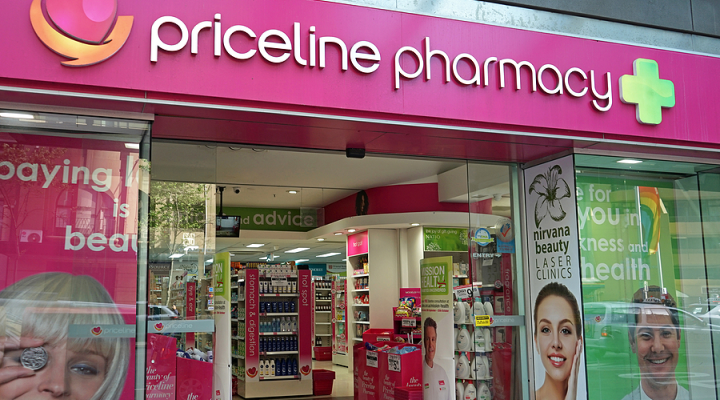Imagine running a business with more than 1400 managing directors. That is a good analogy for one of the challenges ahead of Wesfarmers if, as now expected, it succeeds with its takeover of Australian Pharmaceutical Industries. The issue of satisfying the hearts and minds of 1400-plus pharmacy customers may well have been a consideration in Woolworths’ decision to withdraw its rival offer for API this month. Lodged in December, Woolworths’ $872 million non-binding offer trumped Wesfarmers’
’ bid of $547 million, which had seen off an earlier challenge from Sigma Healthcare.
From my point of view, Woolworths would have been a better fit with API than Wesfarmers, in operational terms, but its late entry in the bidding war faced significant hurdles.
Those hurdles included concerns from the Pharmacy Guild despite Woolworths proposing a voluntary code of conduct, no doubt an indication that API customers were not keen to have a supermarket owner for their primary supply line. The security of data and pharmacy group IP was also a key issue in discussions with Wesfarmers last year.
Woolworths’ failed Masters Home Improvement venture – which used Home Timber and Hardware and Thrifty-Link Hardware as an entry platform to the hardware category – also weighed on minds in the pharmacy sector. An earlier 1990s grocery venture with Australian Independent Wholesalers didn’t help either.
Woolworths arguably also faced a more rigorous evaluation of its proposed takeover from the Australian Competition and Consumer Commission (ACCC) than Wesfarmers. And Woolies itself no doubt had a thought or two about the merits of buying into yet another highly regulated business category after retreating from gaming and liquor.
Despite all that, the crunch factors that ultimately caused Woolworths to walk away from its offer were a one-month due diligence assessment that failed to meet the financial metrics of Australia’s largest retailer, and a nearly 20 per cent stake in API that Wesfarmers acquired from Washington H Soul Pattinson.
In fact, Wesfarmers’ blocking stake was also a key factor in the despatch of Sigma’s earlier rival bid and proved an effective defence against other potential suitors as well.
Sealing the deal
The acquisition cost for API is relatively low in the context of Wesfarmers and Woolworths profits and the business’s position in an acknowledged growth sector, but the value proposition was apparently a different matter.
The price tag failed to lure any private-equity bids or international retailers, and proved too high for some of Sigma’s key shareholders.
API’s apparent value did not encourage a higher offer from Wesfarmers to match or outbid Woolworths, but Woolies’ return on investment measures did not justify the company’s non-binding bid.
So, Wesfarmers is progressing a Scheme Implementation Deed creating a wholly owned subsidiary to facilitate its acquisition. Directors of API have already recommended acceptance of the $1.55-a-share bid in the absence of any other offers. However, Wesfarmers’ takeover of API has several hurdles to complete before it can take effect.
The release of a scheme booklet including an independent expert’s report on the transaction, directors’ recommendations, and details on the imminent scheme meeting with API indicate the takeover could be finalised by the end of March.
It will require approval from API shareholders – including pharmacists who are also customers – the courts and the ACCC.
The competition review could push out the timeframe, given the likelihood of several submissions from suppliers, pharmacy banner groups, retail landlords, the Pharmacy Guild, API pharmacy customers, and possibly state governments and other retailers.
More hurdles after the merger
Even if Wesfarmers succeeds with its takeover, it will face further challenges with the API venture, including navigating the heavy government regulation of the sector and fierce competition in the category.
Chemist Warehouse is the strongest competitor and also illustrates the regulation tangle, with its years-long stock exchange listing plans.
Wesfarmers faces the prospect of losing some API customers who don’t want to be supplied by a corporate owner from outside the sector. There are already some disgruntled pharmacists in the Priceline franchise system; there was pushback from those pharmacists over a Sigma merger, let alone one from an external corporate with no pharmacy or health-sector experience.
Still, Wesfarmers believes the health sector offers high growth potential and notes the comparable retail ranges in its former Coles supermarkets business were very profitable. However, costs in pharmacies are much higher than in supermarkets; pharmacists are much more expensive than shelf stackers and courtesy staff at self-service checkouts. At the same time, government red tape regulates pricing and, therefore, profitability. Also, pharmacists and franchisees represent significant cultural challenges for Wesfarmers.
On the upside, API may provide a platform on which Wesfarmers can build a health division; the takeover makes the most sense if it is the first of a number of acquisitions that would provide scale. As a standalone proposition, the API business requires considerable capital investment to ensure it remains competitive in its wholesaling operations and reinvigorates its retail brands: Priceline, Priceline Pharmacy, Clear Skincare, Soul Pattinson Chemist, Pharmacist Advice, and Club Premium.
The business generates annual sales of about $4 billion.







